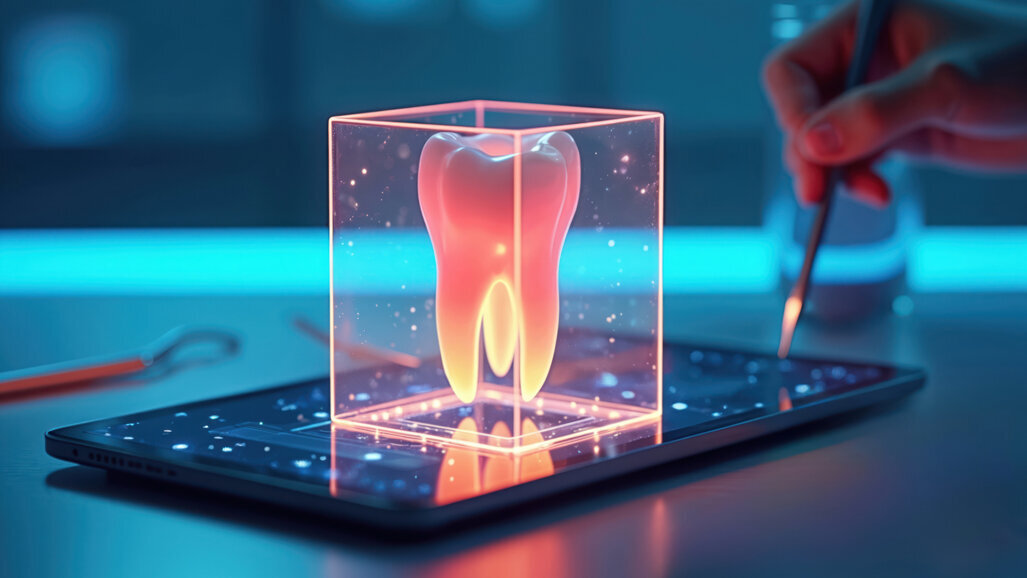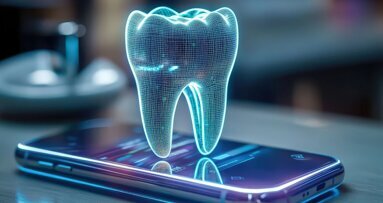BRISBANE, Australia: Artificial intelligence (AI) is emerging as a transformative force in Australian dentistry, and a new national review has mapped how the technology is reshaping practice, education and patient care. It shows that, far from being a futuristic add-on, AI is steadily embedding itself across the profession, offering both breakthroughs and challenges for the country’s oral health system.
As described in an editorial by Dental Tribune International, AI is powerfully reshaping many facets of dentistry. Consistent with this observation, the scoping review, led by researchers at the University of Queensland in Brisbane, identified AI as a tool already influencing clinical decision-making, treatment planning and diagnostic accuracy. In many areas, extending from orthodontics to pathology, machine learning systems are demonstrating the ability to spot conditions earlier and with greater precision than traditional methods. Predictive models are also being developed to anticipate disease progression, supporting dentists in tailoring care to individual patients.
AI’s reach goes beyond the clinic. In education, it is helping to expand training opportunities, particularly for students outside major metropolitan centres. Virtual learning environments and AI-assisted feedback are reducing the reliance on physical resources and creating more equitable access to professional development. For patients in rural and remote regions, wearable devices and teledentistry platforms powered by AI promise to bridge long-standing gaps in service delivery. The expansion of AI beyond the clinic is also exemplified in the rise of AI-powered mobile apps, which are now gaining rapid uptake across the world.
The review also makes clear that these gains come with significant responsibilities. The integration of AI introduces complex ethical and regulatory issues. Bias in algorithms, particularly where datasets fail to reflect Australia’s diverse population, risks entrenching inequities. Patient privacy and data governance remain central concerns as sensitive health information is increasingly handled by digital systems. The potential for machine error, coupled with the temptation for practitioners to rely too heavily on automated outputs, underscores the need for vigilance.
Responsibility in this new landscape remains firmly with practitioners. While AI-enhanced tools may be registered as medical devices, oversight by the Dental Board of Australia and the Therapeutic Goods Administration ensures that human judgment cannot be outsourced. Dentists must remain accountable for the care they deliver, regardless of the technology in use.
The review argues that Australia now faces a decisive moment. To harness AI’s benefits while safeguarding trust, the profession must strengthen its frameworks for regulation, training and collaboration. With robust governance and responsible uptake, AI could reduce disparities, ease workforce pressures and modernise the national approach to oral health. Without it, risks to equity, safety and professional autonomy could grow.
The study, titled “Artificial intelligence in Australian dental and general healthcare: A scoping review”, was published in the Australian Dental Journal on 10 August 2025, ahead of inclusion in an issue.
Topics:
Tags:
SAN FRANCISCO, US: The migration of myriad dental services on to the cloud is one of the major dimensions of transformation occurring in dentistry. A key ...
AMMAN, Jordan: As artificial intelligence continues to expand its role in healthcare, large language models such as ChatGPT are increasingly being used to ...
CARDIFF, Wales: As humanity continues to lean into artificial intelligence (AI) and digital technologies for all manner of basic life challenges, the realm ...
MUNICH, Germany: Molar incisor hypomineralisation (MIH) constitutes a global oral health issue, affecting around 14% of the world’s population. Like with ...
Live webinar
Tue. 24 February 2026
1:00 pm EST (New York)
Prof. Dr. Markus B. Hürzeler
Live webinar
Tue. 24 February 2026
3:00 pm EST (New York)
Prof. Dr. Marcel A. Wainwright DDS, PhD
Live webinar
Wed. 25 February 2026
11:00 am EST (New York)
Prof. Dr. Daniel Edelhoff
Live webinar
Wed. 25 February 2026
1:00 pm EST (New York)
Live webinar
Wed. 25 February 2026
8:00 pm EST (New York)
Live webinar
Tue. 3 March 2026
11:00 am EST (New York)
Dr. Omar Lugo Cirujano Maxilofacial
Live webinar
Tue. 3 March 2026
8:00 pm EST (New York)
Dr. Vasiliki Maseli DDS, MS, EdM



 Austria / Österreich
Austria / Österreich
 Bosnia and Herzegovina / Босна и Херцеговина
Bosnia and Herzegovina / Босна и Херцеговина
 Bulgaria / България
Bulgaria / България
 Croatia / Hrvatska
Croatia / Hrvatska
 Czech Republic & Slovakia / Česká republika & Slovensko
Czech Republic & Slovakia / Česká republika & Slovensko
 France / France
France / France
 Germany / Deutschland
Germany / Deutschland
 Greece / ΕΛΛΑΔΑ
Greece / ΕΛΛΑΔΑ
 Hungary / Hungary
Hungary / Hungary
 Italy / Italia
Italy / Italia
 Netherlands / Nederland
Netherlands / Nederland
 Nordic / Nordic
Nordic / Nordic
 Poland / Polska
Poland / Polska
 Portugal / Portugal
Portugal / Portugal
 Romania & Moldova / România & Moldova
Romania & Moldova / România & Moldova
 Slovenia / Slovenija
Slovenia / Slovenija
 Serbia & Montenegro / Србија и Црна Гора
Serbia & Montenegro / Србија и Црна Гора
 Spain / España
Spain / España
 Switzerland / Schweiz
Switzerland / Schweiz
 Turkey / Türkiye
Turkey / Türkiye
 UK & Ireland / UK & Ireland
UK & Ireland / UK & Ireland
 Brazil / Brasil
Brazil / Brasil
 Canada / Canada
Canada / Canada
 Latin America / Latinoamérica
Latin America / Latinoamérica
 USA / USA
USA / USA
 China / 中国
China / 中国
 India / भारत गणराज्य
India / भारत गणराज्य
 Pakistan / Pākistān
Pakistan / Pākistān
 Vietnam / Việt Nam
Vietnam / Việt Nam
 ASEAN / ASEAN
ASEAN / ASEAN
 Israel / מְדִינַת יִשְׂרָאֵל
Israel / מְדִינַת יִשְׂרָאֵל
 Algeria, Morocco & Tunisia / الجزائر والمغرب وتونس
Algeria, Morocco & Tunisia / الجزائر والمغرب وتونس
 Middle East / Middle East
Middle East / Middle East






































To post a reply please login or register